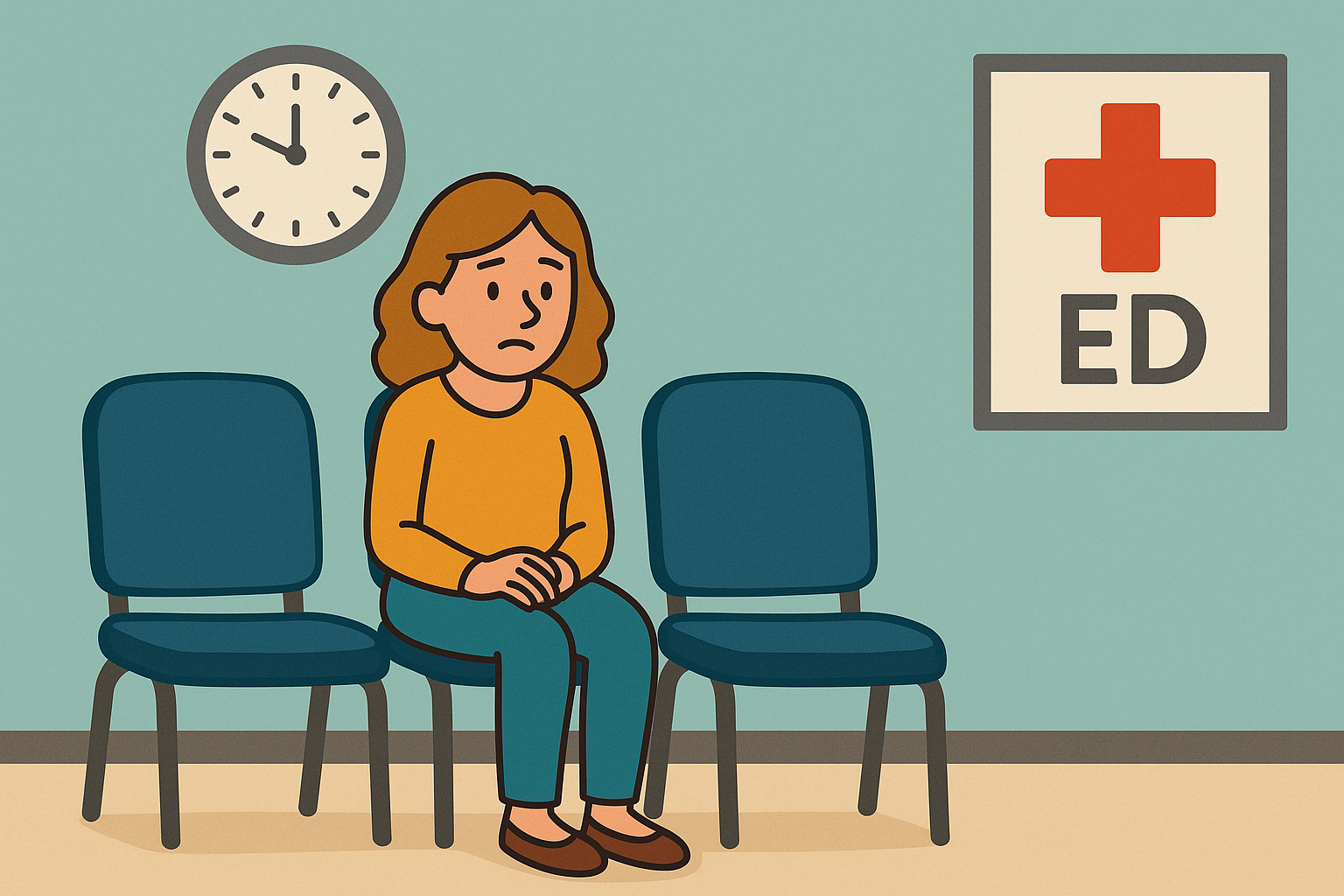How Long is This Going to Take?
If you’ve ever asked, “How long will this take?” you’re not alone. Think of this as your behind-the-scenes tour of labs, scans, and the occasional plot twist that keeps the clock ticking.
5/5/20252 min read


"How Long Is This Going to Take?"
The question I hear most often in the emergency department is: "So, how long is this going to take?" I completely understand, I am an emergency medicine physician, and we are the most inpatient people you'll meet.
Here's the reality: most patients who go home after their visit spend about 3-4 hours with us. I know that might feel like forever when you're not feeling well, but there's a method to what might seem like madness.
What's Actually Happening During Those Hours
Lab work takes time
Blood and urine tests typically need 45-90 minutes to process—assuming the lab equipment cooperates and your blood samples don't need to be redrawn. The lab technicians are running multiple tests to give us a complete picture of what's going on inside your body.
Imaging is a multi-step process 🩻
X-rays and CT scans can take 3-4 hours from start to finish. This isn't just the few minutes you spend in the scanner. It includes scheduling your slot, completing the scan, and waiting for a radiologist to carefully review and interpret your images. We want to make sure we catch everything.
Consultations add time 🧑🏼⚕️
If we need to call your primary care doctor or a specialist, that usually adds about an hour. Many specialists on-call are busy in their clinics (or sleeping at night). We ask them to call within 30 minutes.
Emergencies aren't always predictable 💊 Sometimes we need to repeat labs to confirm results, your symptoms change and require reassessment, or you need additional medication to help with pain or nausea. These aren't delays, but they're part of providing thorough care.
The Bottom Line
We're moving as quickly as we can while being as safe as possible. Every extra minute usually means we're double-checking something important or waiting for crucial information that will guide your treatment.
If your visit takes longer than expected, it's not because we've forgotten about you. It's because we're working to get the right answers, provide the right treatments, and create the safest plan for moving forward.
As a department, we are working on the best ways to KEEP YOU INFORMED. Please do not hesitate to ask what the next steps in your care are.